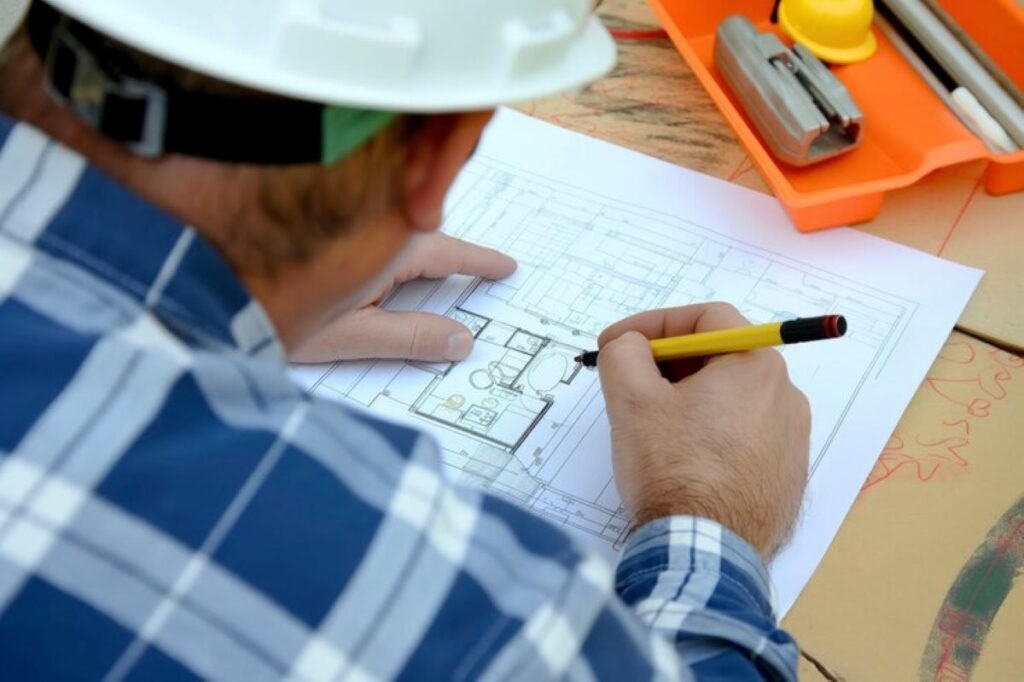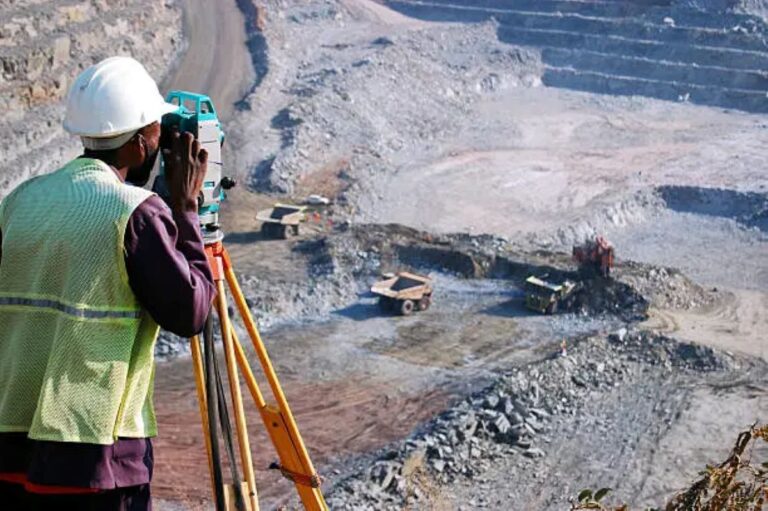Construction surveyors play a pivotal role in the successful execution of building projects. Their expertise ensures that structures are built accurately and safely, adhering to design specifications and local regulations. This article delves into the key tasks performed by construction surveyors on site, highlighting their importance in the construction process.
Understanding the Role of Construction Surveyors
Construction surveyors are professionals who utilise their knowledge of mathematics, engineering, and technology to measure and map land. They ensure that construction projects comply with legal boundaries, design specifications, and safety standards. Their work begins long before the first brick is laid, and they remain involved throughout the construction process.
Pre-Construction Surveys
Before any construction begins, surveyors conduct pre-construction surveys to gather essential data about the site. This includes topographical surveys, which map the terrain and identify features such as hills, valleys, and existing structures. These surveys help in understanding the land’s characteristics and determining the best approach for the project.
Additionally, boundary surveys are crucial as they establish the legal limits of the property. This information is vital to prevent disputes with neighbouring properties and ensure compliance with zoning laws. By accurately marking these boundaries, construction surveyors provide a clear framework for the project, helping to avoid costly mistakes later on.
Setting Out
One of the most critical tasks performed by construction surveyors is setting out. This process involves transferring the design plans from paper to the physical site. Surveyors use precise measurements to mark the locations of foundations, walls, and other structural elements, ensuring that everything aligns with the architectural drawings.
Setting out requires a high level of accuracy, as even minor errors can lead to significant issues during construction. Surveyors employ various tools and technologies, such as total stations and GPS equipment, to achieve the required precision. This stage is crucial for the overall integrity of the structure, as it lays the groundwork for all subsequent construction activities.
Monitoring and Quality Control
Once construction is underway, the role of the surveyor shifts to monitoring and quality control. This phase is essential for ensuring that the project adheres to the specified standards and regulations.
Site Inspections
Regular site inspections are a fundamental aspect of a construction surveyor’s responsibilities. During these inspections, surveyors assess the work completed against the original plans and specifications. They check for compliance with building codes, safety regulations, and quality standards.
These inspections not only help to identify potential issues early on but also provide an opportunity for the surveyor to offer guidance to the construction team. By addressing concerns promptly, surveyors can help prevent delays and additional costs, ensuring that the project stays on track.
As-Built Surveys
As construction progresses, surveyors conduct as-built surveys to document the actual dimensions and locations of the completed work. This is particularly important for projects that involve complex designs or alterations during construction. The as-built survey provides a record of what has been built, which is invaluable for future maintenance and renovations.
These surveys also play a crucial role in verifying that the construction aligns with the original plans. Any discrepancies can be addressed before the project reaches completion, reducing the risk of costly modifications later on.
Collaboration with Other Professionals
Construction surveyors do not work in isolation; they collaborate closely with various professionals throughout the project lifecycle. This collaboration is essential for ensuring that all aspects of the construction process are coordinated effectively.
Working with Architects and Engineers
Surveyors frequently liaise with architects and engineers to ensure that the project design is feasible and can be executed as planned. By providing accurate site data and measurements, surveyors help these professionals make informed decisions about the design and construction methods.
This collaboration extends to resolving any design challenges that may arise during construction. Surveyors can offer insights based on their site evaluations, helping to modify plans to better suit the terrain or existing conditions.
Coordination with Contractors
Effective communication with contractors is also a key aspect of a surveyor’s role. They provide contractors with the necessary information to carry out their work accurately. This includes detailed measurements, site boundaries, and any specific requirements outlined in the project plans.
By maintaining open lines of communication, surveyors can help ensure that contractors understand the expectations and requirements of the project. This collaboration is vital for minimising errors and ensuring that the construction process runs smoothly. Check out more about the benefits of utility mapping for construction projects.
Utilising Technology in Surveying
The field of construction surveying has evolved significantly with the advent of new technologies. Modern surveyors leverage various tools and software to enhance their efficiency and accuracy.

Advanced Surveying Equipment
Construction surveyors now use advanced equipment such as laser scanners, drones, and 3D modelling software. Laser scanning allows for rapid and precise data collection, creating detailed 3D models of the site. This technology is particularly useful for large or complex projects, where traditional surveying methods may be time-consuming.
Drones have also revolutionised the surveying process, enabling surveyors to capture aerial imagery and data quickly. This aerial perspective can provide valuable insights into the site’s topography and existing features, aiding in the planning and design phases.
Software for Data Analysis
In addition to hardware advancements, surveyors utilise sophisticated software for data analysis and project management. These tools allow for the integration of various data sources, facilitating better decision-making and project tracking.
By employing these technologies, construction surveyors can enhance their accuracy, reduce the time spent on site, and ultimately contribute to more efficient project delivery. The integration of technology into surveying practices is an ongoing trend that continues to shape the industry.
Health and Safety Responsibilities
Health and safety are paramount in the construction industry, and surveyors play a vital role in ensuring that these standards are upheld on site. Their responsibilities extend beyond technical measurements to include the well-being of all personnel involved in the project.
Risk Assessments
Before commencing any work, surveyors conduct thorough risk assessments to identify potential hazards on site. This includes evaluating the terrain, existing structures, and environmental conditions. By identifying risks early, surveyors can implement measures to mitigate them, ensuring a safer working environment.
These assessments are not a one-time task; they should be revisited regularly as the project progresses and conditions change. Continuous monitoring helps to maintain safety standards and protect workers from accidents or injuries.
Compliance with Safety Regulations
Construction surveyors must also ensure that all work complies with relevant health and safety regulations. This includes adhering to guidelines set forth by local authorities and industry standards. By ensuring compliance, surveyors help to create a culture of safety on site, reducing the likelihood of incidents.
Moreover, surveyors often provide training and guidance to other site personnel regarding safety practices. This collaborative approach fosters a shared responsibility for health and safety, which is essential for the success of any construction project.
The Importance of Communication Skills
While technical skills are crucial for construction surveyors, effective communication is equally important. Surveyors must be able to convey complex information clearly and concisely to various stakeholders, including clients, contractors, and regulatory bodies.
Reporting and Documentation
Construction surveyors are responsible for preparing detailed reports and documentation throughout the project. These documents serve as a record of the work completed, measurements taken, and any issues encountered. Clear and accurate reporting is essential for maintaining transparency and accountability.
Additionally, surveyors must be adept at presenting their findings to clients and other stakeholders. This may involve explaining technical concepts in layman’s terms, ensuring that everyone involved understands the project’s progress and any challenges faced.
Conflict Resolution
In the dynamic environment of construction, conflicts may arise between various parties. Surveyors often find themselves in the position of mediating disputes, whether related to boundaries, design discrepancies, or safety concerns. Strong communication skills enable surveyors to navigate these situations effectively, helping to find solutions that satisfy all parties involved.

Conclusion
Construction surveyors are integral to the success of any building project, performing a wide range of tasks that ensure accuracy, safety, and compliance. From pre-construction surveys to ongoing monitoring and collaboration with other professionals, their expertise is invaluable throughout the construction process.
As the industry continues to evolve, the role of construction surveyors will adapt alongside advancements in technology and changing regulations. Their commitment to quality and safety will remain a cornerstone of successful construction projects, making them essential players in the field.
In summary, the multifaceted responsibilities of construction surveyors highlight their importance in the construction industry. By understanding and appreciating their role, stakeholders can better recognise the value they bring to every project.



